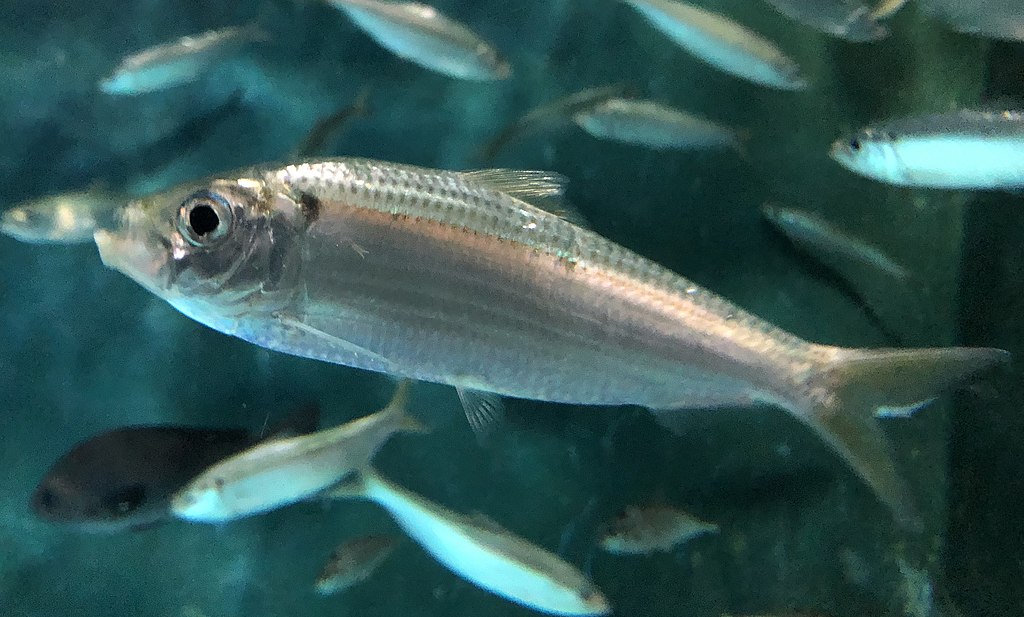
Japanase sardinella. Image by Totti, Wikimedia Commons.
Smaller fish and invertebrates, such as gazami crab or Japanese sardinella, are replacing larger, more commercially valuable fish such as largehead hairtail in the Bohai Sea in northeastern China.
A new study by scientists with the Chinese Academy of Sciences and the Sea Around Us initiative at the University of British Columbia’s Institute for the Oceans and Fisheries shows that industrial fisheries have severely affected food webs in the Bohai Sea, with organisms that occupy lower levels in the food web becoming more common than larger predators.
“By analyzing data from scientific surveys for the period 1959-2010, we noticed that while in the mid-20th century more than 80 per cent of the biomass in the ecosystem of the Bohai Sea was composed of large fishes such as Japanese seabass or yellow croaker, by the decade of 2010, these large fishes comprised about 50 per cent of the biomass with smaller or mixed fishes making up the other half,” said Cui Liang, a researcher with the Chinese Academy of Sciences and lead author of the study.
Liang and her colleague Daniel Pauly, who is the principal investigator of the Sea Around Us, compared the numbers from the surveys to official fisheries data and discovered that the phenomenon of lower trophic level fish and invertebrates becoming more abundant was more pronounced when looking at the actual fish populations than when looking at fisheries catches.
The discrepancy is caused by what is now known as the ‘skipper effect,’ which is what happens when skippers fish deeper, further away from shore or for longer periods in order to continue catching the same amount of larger fishes despite their declining numbers.
“The problem with the ‘skipper effect’ is that it hides how affected the biomass really is,” Pauly said. “In other words, it masks the fishing down phenomenon, which is the name that we give to what happens when fisheries deplete stocks of large predatory fish -which are at the top of the food web- and have to turn to smaller species until they are only left with the tiny fish and invertebrates that they used to discard before.”
In their review, the researchers found that the fishing down effect has been so pervasive in the Bohai Sea that the extirpation of large fish has even impacted the base of the food chain, as it has also caused a decline in phytoplankton, the microorganisms in charge of fueling the entire marine food web.
The study “Masking and unmasking fishing down effects: The Bohai Sea (China) as a case study” was published [online] in Ocean and Coastal Management https://doi.org/10.1016/j.ocecoaman.2019.105033.


